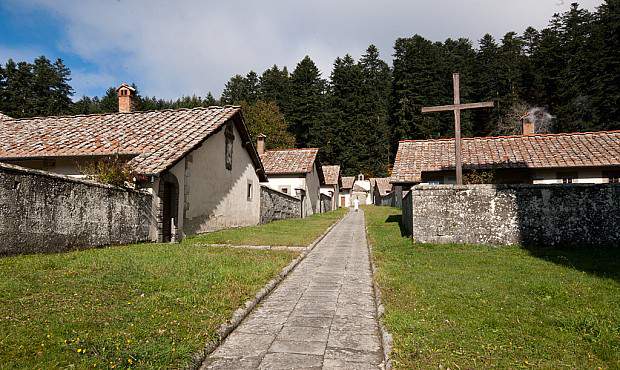
Every generation eventually returns to Camaldoli. To the Code of Camaldoli, drawn up in the summer of 1943, commemorated decade after decade. It is always set in a contemporary framework and perspective. This year’s 80th anniversary will be celebrated with particular solemnity.
In addition to the dynamism of the organising scientific committee and the commitment of the various institutions involved, there is perhaps a deeper, albeit unspoken, reason for seizing this opportunity for reflection and proposal. Or, to be more precise, a number of reasons.
The first is the awareness that a certain history, or rather the narrative of what used to be called the Catholic movement, is in danger of disappearing, of dissolving into a substantial homologation, which is obviously also an impoverishment. There is the awareness of a historical event, and at the same time the fact that it could be discontinued, not least because it is slowly falling into oblivion. History, in the words of one of the two leaders of the time, Alcide De Gasperi (the other was Giovanni Battista Montini), is a mentor, but history must be studied. Indeed.
This is the first reason, I dare say the preliminary reason, for celebrating the eightieth anniversary of an emblematic event in a journey that began with Pius XII’s 1942 radio message and ended with the founding of the Christian Democratic Party, in which Catholics offered to contribute to the reconstruction of Italy and the creation of its democratic system.
That leads us to the second reason to seize this opportunity.
Admittedly, a ‘Code’ cannot be rewritten. Re-reading these pages, these statements, reveals their full historical distance. The Studium publishing house, which published the Code in 1945, still has it in its catalogue, in digital form. This meeting of minds, of generations, the leading role played by young people, with Sergio Paronetto at the helm, marks a method and an end that are equally valid for our today and our tomorrow.
That method and that style were not aimed at creating a political party, but at expressing something meaningful, something that is urgently needed in Italy and (at least) in Europe, amidst the widespread nihilistic confusion, i.e. trivial and conflictual, of recent years. It is an urgent goal and commitment. With this method.
There is a story to be told, there is an urgent task to be accomplished, and it also requires a propitious environment. This is where the spiritual spark is to be found, the prayerful and carefully conceived Christianity, the “chewed” Word of God, according to the Benedictine spirituality of Camaldoli.
The third point: a welcoming environment, made up of energies, generations, different ages, which today is best expressed with the word “purpose”. Furthermore, it is no coincidence that the forthcoming Social Week, for which a suitable approach and development methodology is finally being sought, is dedicated to democracy. Now as back then.
Examples, demands, opportunities, energy, problems: this is a challenging but favourable time for something new, plural, collective to emerge. Something effective, which can inspire a leadership of service, like the leadership that gathered in Camaldoli eighty years ago and effectively served the common good. It sowed seeds which bore fruit. In order to bear new fruit, the process must be renewed.











